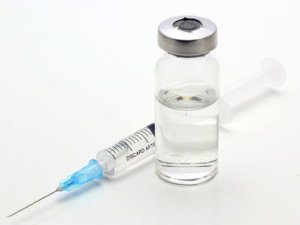
The share of payment systems created by banking and non-bank resident institutions in Ukraine in the amount of money transfers to the country in the first half of 2018 was 15.6% compared to 4.8% in 2017, the National Bank of Ukraine (NBU) has said. According to data on its website, if over the past year $113.7 million was transferred to the country through Ukrainian payment systems, then for the six months of this year some $189 million.
The statistics of the National Bank contains no data on the turnover of specific Ukrainian systems in this market, it gives only their share in the market of transfers within Ukraine, the total volume of which amounted to UAH 69.34 billion (almost $2.6 billion compared with $4.45 billion for the entire year of 2017).
Here the leader was the TYME payment system, whose registration the National Bank canceled on June 22 this year, with 42.78%, followed by Postal Transfer from Ukrposhta with 27.98%. They are followed by Financial World (Finansovy Svit) with 7.2%, City24 with 6.73%, InterPayService with 5.34%, Flashplay with 4.43%, while each of the following 22 systems has a share less than 1%. The National Bank specifies that according to the number of participants the leaders in the first half of the year were Post Finance LLC with 44.34% and Ukrposhta with 27.97%.
Regarding the systems created by non-residents, the leader among them remains Western Union, which increased the gap from MoneyGram: if in 2017 their share in transfers to Ukraine among non-residents was 54.5% and 23.8% respectively, then in the first half of 2018 some 56% and 23% respectively. The share of IntelExpress ranking third fell from 12.7% to 9%.

The number of Green Card international insurance contracts signed by the members of the Motor (Transport) Insurance Bureau of Ukraine (MTIBU) in January-June 2018 increased by 5.64% compared to the same period in 2017, to UAH 338,318, according to the bureau’s website. The amount of accrued insurance premiums increased by 26.59%, to UAH 642.4 million.
The amount of claim fee payments for January-June fell by 0.38%, to almost EUR 5.98 million.
The number of paid claims increased by 3.53% to 2,609.
The MTIBU is the only association of insurers that carry out compulsory insurance of vehicle owners’ civil liability for harm caused to third parties. Its members are 56 insurance companies, in particular full members of the bureau that have the right to sign Green Card contracts are nine companies.

The market of new commercial vehicles in Ukraine (including heavy trucks) in January-July 2018 increased by 17% compared to the same period in 2017, to 7,300 units, according to the Ukrautoprom association. Thus, following the results of seven months, the market reduced its growth rates (in January-May the growth from the same period of 2017 was 22%, in January-June some 24%).
This situation is associated with a fall in sales of commercial vehicles in July this year by 18% from July 2017 and by 25% from June this year, to 928 units.
The highest demand in the July market (like in June) was recorded for Renault cars, which occupied almost 23% of the market with the registration of 211 vehicles (18% more than in July last year). Fiat ranked second with 109 registrations, which is 36% more than last year’s July figure, and Mercedes-Benz ranks third with a reduction of 31% and with 83 vehicles sold. According to the association, the Ukrainian auto brand ZAZ ranks 13th with 21 cars (against 15 units in July of last year and 13 in June of the current year), KrAZ, as in last year’s July, sold 13 trucks. At the same time, Russian brands UAZ (22 cars against 11 in July 2017) and KAMAZ (20 against 10) increased their registration, while GAZ more than halved sales, to 60 units. Belarusian MAZ in July also significantly reduced sales from July of last year, by 55.8%, to 42 vehicles.

Biopharma, a blood products maker, plans to bring tetanus immune globulin (TIG) to the market by the end of 2019, Biopharma Group President Kostiantyn Yefymenko has said in an interview with Interfax-Ukraine. “Taking into account the country’s needs, we are working on the specific tetanus immune globulin. We hope that we would be able to bring it to the market by late 2019,” he said.
Biopharma is one of the ten largest Ukrainian producers of medicines. It produces more than 20 immunobiological preparations from donor blood, preparations obtained by recombinant DNA technology and probiotics.

The Canadian defense sector is working on plans to develop defense cooperation with Ukraine, Conservative MP from Canada James Bezan has said in an interview with UATV. Bezan said that soon supplies of Canadian small arms could be started to Ukraine.
“Canada and Ukraine have signed one contract to supply sniper rifles. We are waiting for the signing of the permit to export the arms by the Canadian government,” he said. Bezan did not specify the participants and details of the mentioned arms contract, saying only that the forthcoming delivery of Canadian small arms to Ukraine is planned to be provided on a commercial basis within the special export license issued by the Canadian government.
According to the Canadian politician, the prospects for working in the defense market of Ukraine are currently being studied by a number of Canadian defense companies. “I know that there are other manufacturers who produce machine guns, light armored vehicles and other equipment, and study the potential of work with Ukrainian companies, Ukrainian Armed Forces,” Bezan said, recalling that for the time being there are no legislative restrictions in Canada on the supply of certain types of weapons to Ukraine.
As reported, in December 2017, the government of Canada amended the rules of arms exports, allowing the sale of small arms to Ukraine.

Georgia exported 38.2 million bottles of wine from grapes (0.75-liter bottles) in January-June 2018, 21% more than in 2017, the Agriculture Ministry’s National Wine Agency reported. Russia was the leading importer of Georgian wine in the period, boosting imports 24.4% to 24.022 million bottles or 62.9% of the total. Other major importers included Ukraine – 4.191 million bottles (11% of the total), China – 2.976 million (7.8%), Kazakhstan – 1.652 million (4.3%) and Poland 1.164 million (4.1%).
A total of 190 Georgian companies exported wine in the six months, 18 more than a year earlier. Exports to countries in Europe and Asia, and to the U.S. and other countries, increased substantially. Georgia also exported 8.4 million bottles of brandy (0.5-liter bottles), 23% more than in H1 2017, to 20 countries. Revenue rose 6% to $17 million. Overall exports of wine, brandy and other products – chacha, other alcoholic beverages, wine materials and brandy spirits – were worth $148.3 million, 21.5% more. Georgia exported wine to 48 countries in H1 2018, up from 44 in the same period last year. Revenue from the exports rose 28% to $90 million.